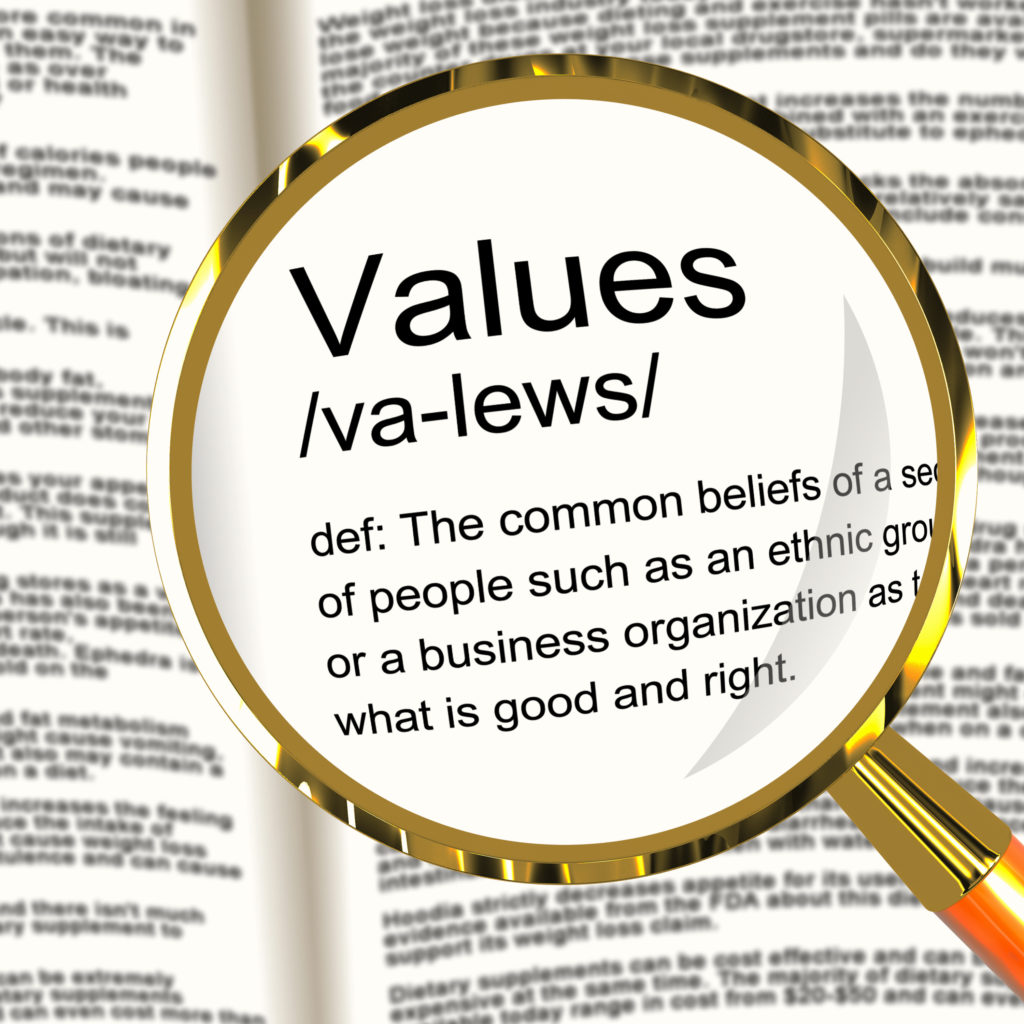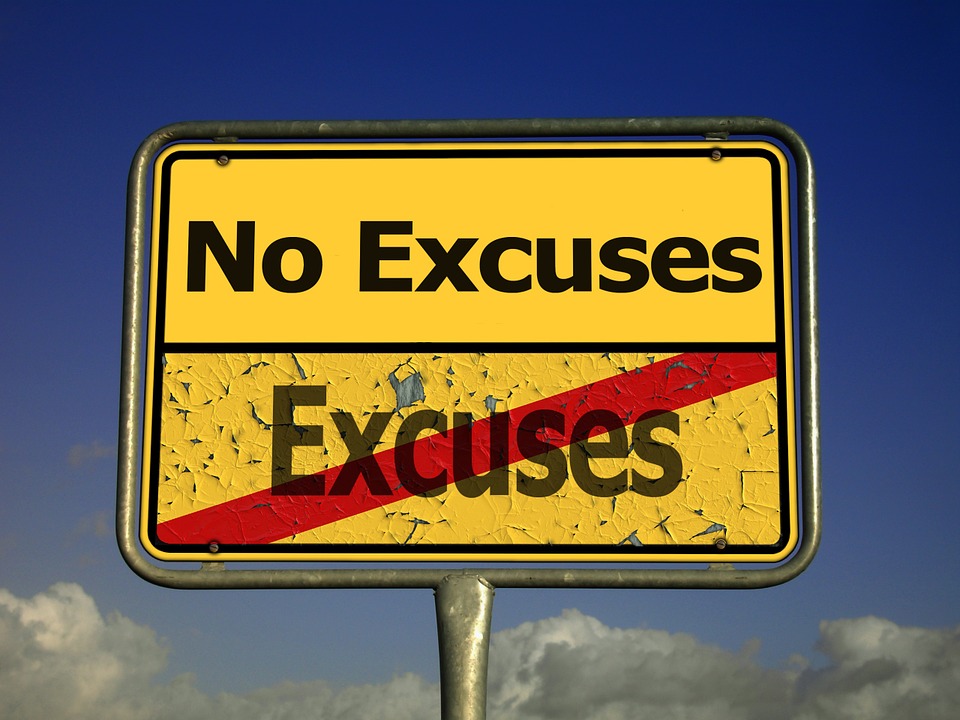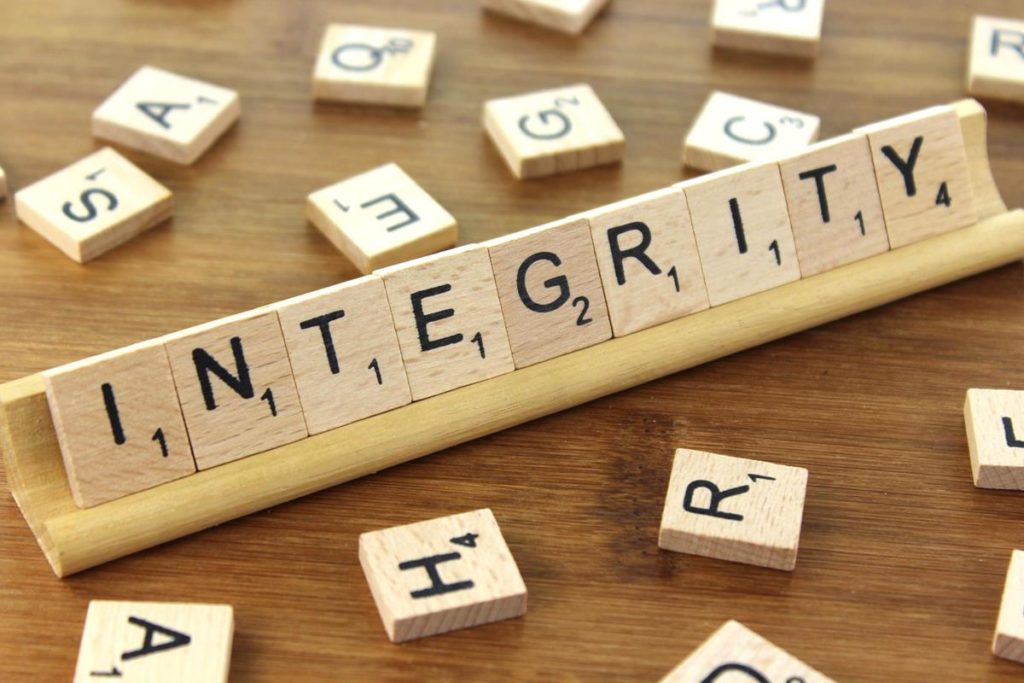That’s a question I found I was asking myself recently, “Is integrity dead? Does anyone actually value keeping their word, and doing what they say they will do?”
While consulting to various organisations recently, I have been coming across a surprisingly large number of truly lovely people who simply lack integrity – not just in one organisation, but in them all. These people are not openly dishonest, nor are they unscrupulous, nor corrupt.
They truly are exceedingly lovely individuals…
(you can hear the ‘but’ coming, can’t you?)
But,
- Some think very little of turning up late (and for some ‘late’ has become the norm)…
- Some fudge and/or avoid the truth (lie) so as not to have to confront a difficult situation…
- Some participate in negative conversations about people, often not knowing all the facts – and even if they did know all the facts, participate in conversations that frankly have nothing to do with them…
“Real integrity is doing the right thing, knowing that nobody’s going to know whether you did it or not.” – Oprah Winfrey
While we would all like to think of ourselves as honourable people, have you ever asked yourself, “am I a person who lives with integrity? Can people trust me?”
…and I don’t mean that you won’t steal the family silver. I mean:
- Do you keep your commitments?
- Do you turn up to meetings on time?
- Do you meet deadlines?
- Do you judge others?
- Do people feel they can count on you?
- Do you gossip about people behind their back?
- Can people trust you if you say you will do something or be somewhere on or by a certain time/date?
It seems fewer and fewer people realise the importance of living a life of integrity, not just when it is convenient, but always. Many also seem to either be oblivious to or simply ignore the negative ripple effect a lack of integrity and trustworthiness can have on relationships, families, and corporations.

What does integrity look like?
While certainly not all, many of the attributes of a person who lives with integrity are the same as one who lives with an abundance mindset:
| Abundance thinkers: | Scarcity thinkers: |
| Believe in positive possibilities | Are pessimistic about the future |
| Think big | Think small |
| Encourage others | Find fault in others |
| Understand that everything that happens in their world (positive and negative) is of their creation | Blame others for their circumstances |
| Believe there is always more | Believe there is never enough and one needs to fight for more |
| Willingly share their knowledge and contacts with others | Carefully guard their knowledge and contacts, only sharing when they feel they will directly behefit |
| Withhold judgement | Judge others regularly |
| Trust people until proven untrustworthy | Distrust until proven trustworthy |
| Are inwardly confident, self-assured and appreciative | Lack self-confidence and display ‘entitled’ and often selfish behaviour |
| Welcome competition as a means to grow, develop and expand | See competition as a necessary evil and seek to destroy the |
| Are open, honest, warm and welcoming | May appear warm and welcoming, but often undermining those in their acquaintence |
| Believes collaboration is the way forward | Believes competition is the only way |
| Has no fear of being replaced because they focus on what is best for all, not just themselves | Afraid of being replaced |
| Embraces change | Fears and disrupts change |
| Inspire others | Condescend others |
| Know failure is a step toward success | Fear failure |
| Do not engage in gossip, or complaining about people to others | Talk negatively about people to others, often thinking they are being constructive |
| Ask themselves, ‘how can I be of service?’ | Ask themselves, ‘what’s in it for me?’ |
“Integrity is not something you show others. It is how you behave behind their back.” Anonymous
In addition, those with integrity:
- Keep their word, their promises, and their commitments
- Practice non-judgement
- Communicate honestly
- Give credit where due
- Are respectful – and as a consequence, are usually respected.

None among us can say we are perfect, and this is not about “throwing the first stone”, but rather highlighting the importance of valuing how we show up in the world.
Your reputation and integrity are everything. Follow through on what you say you’re going to do. Your credibility can only be built over time, and it is built from the history of your words and actions. Maria Razumich-Zec
In my own life early on, I spent decades living a life of “excuses”. If I was late, there was an excuse… If I missed a deadline, there was an excuse… If I didn’t achieve something I set out to achieve, there was an excuse…
OK, yes, sometimes “stuff happens” – but if we are really honest, stuff doesn’t happen all that frequently.
Most of the time we don’t meet our commitments because we didn’t make our objective a priority, and thus we let ourselves down and compromised our integrity.
We didn’t make it a priority to be on time to that meeting – and as a result, we not only demonstrated that we cannot be trusted to do what we say we will do (essentially that our word doesn’t mean anything, and we cannot be relied upon), we showed a significant lack of respect for everyone else who did show up on time.
A friend of mine is notoriously late – so much so that many who know him became accustomed to him turning up even an hour late at times. He was always late – EXCEPT when he met up with his father. For those meetings, he was always 100% on time (and sometimes even early).
“I remember my mom giving me a grocery list when I was a kid. I’d have to trundle down to the store and pick it all up. An entire week’s worth. Then she’d go down on Saturday and settle up on the bill. You were your word. It was as simple as that. If you said you were going to do something, you were going to do it.” Quote from “Blusfishing” by Steve Sims
How do we know if we are living a life of integrity?
For starters, you usually know by the way you feel. We all know that feeling when we have said or done something we know wasn’t the best choice and was out of alignment with our integrity.
Secondly, consider asking!
I did this recently and I actually asked 50 people, selected randomly from my contact list.
(Btw, if you want to select a random group from your contact list, simply export them into a spreadsheet, insert a column, enter the random number formula =RAND() and copy the formula for all active rows, sort the column into ascending order and you can the select the top 20 or 50 or however many random contacts you wish. Note – RAND is a volatile function, meaning that each time you refresh the spreadsheet, it will produce a new set of random numbers)
For 25 of my contacts, I asked:
If I promised you I would do something or be somewhere – & your life, &/or the lives of people you love depended upon me being there – what is your level of confidence that I would show up?
For another 25 of my contacts, I asked:
If you were to grade my integrity on a scale of 1-100 (with 1 being low), what grade would you give me and why?
For the first group, all 25 replied and the responses from everyone except two were a total 100% confidence. One of the two exceptions responded that they had complete faith that I would, subject to natural disasters preventing it; and the other said that they had total faith I would, unless I died in the process. Hmmmmm… I guess that’s still a positive? 🙂
For the second group, 23 of the 25 replied and all 23 were 100. One of the two that didn’t respond bounced back (I guess I need to find their new email address), and the other is dead so I guess they are not checking their email (I guess I need to update that list!).
For the ‘why’ the responses were almost all that in their experience I keep my word, I show up on time, and I don’t tend to judge people. Similarly, there were several others who noted that in their experience my integrity is demonstrated by a consistency of the values I hold dear, and how I show up in the world.
I am by no means an integrity role model. I have a truckload of character traits and behaviours that fall short in my own estimation of where I would like them to be – although I am consciously aware of staying focused on the positive, and every day ensuring that I am a better ‘me’ than I was the day before.
Can integrity (and lack of integrity) be contagious?
That made me ponder whether integrity / lack of integrity could also be contagious – meaning having a significant influence on the behaviours of others.
 Broken Windows Theory
Broken Windows Theory
Back in 1982, Wilson and Kelling proposed a theory that in essence said if someone sees a building that already has a number of broken windows, it doesn’t take a lot for them to break another one.
BUT, if there are NO broken windows to begin with, it takes far more conviction to do the wrong thing and break the FIRST window.
This theory, put into practice under the direction of NYC Police Commissioner William Bratton, was largely credited with the dramatic positive turnaround in crime in NYC during the 1990s.
Essentially, the absence of crime became contagious…
Is it possible, by extension, that the level of integrity exhibited on a daily basis by a family, a team, and/or an organisation can also be ‘contagious’?

So, perhaps you are one of those people for whom integrity isn’t yet dead, but it is on life-support.
What can we do to live a more authentic life of integrity?
DECIDE TO!
Seriously – make a decision that you will not settle for less than acting with integrity, moment by moment.
Decide that you will focus on the positives, live with an abundance mindset, and be someone who demonstrates they can be trusted to do what they say they will do – not just when it is convenient, but at all times.
Every conscious action/inaction, decision/indecision is a choice.
We make a choice to turn up late or on time.
We make a choice to focus on people’s weaknesses or their strengths.
We make a choice to build people up or tear them down.
We make a choice to surround ourselves with people who have integrity.
We make a choice to respect others, even when we disagree with them.
We make a choice to get angry and upset, or to see the positives in the situation.
“No one else ‘makes us angry.’ We make ourselves angry when we surrender control of our attitude.” Jim Rohn
We make a choice to worry and stress, or to see the positives in every situation.
We make a choice to keep our commitments.
We make a choice to lead by example.
…and we make a choice to achieve our goals, or a choice to make excuses.
In the end, it all comes back to one of my role models – Yoda:

~ Bella
Bella St John is a fascinating woman whose journey from overcoming adversity, including finding herself homeless as a teenager, to becoming a celebrated figure in business development, coaching, and writing, exemplifies the power of aligning passion with purpose. Her innovative leadership and mentoring methods, especially in virtual settings, and her expertise in cutting-edge technology like Artificial Intelligence (a topic in which she is a published author), have made her a sought-after advisor among top companies globally. Bella’s diverse experiences, reflected in her insightful writings and her amazing lifestyle as a “Luxurious Nomad,” showcase her dedication to personal growth and helping others achieve success. Through her work, Bella encourages people to understand how aligning one’s inner values with their goals can lead to a life of abundance and fulfillment.
✨ Freedom ✨
✨ Keeping History Alive ✨
✨ Bringing Elegance Back To Life ✨
These are Bella’s guiding ideals. She has built for herself a life of relaxed luxury – and has done so primarily by being true to herself, finding the “wonderful” in every situation, and by helping others do the same along the way.

